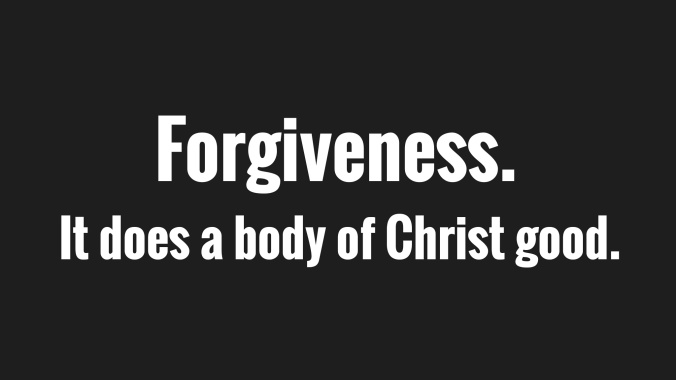
Today’s readings (click below to open in new tab/window):
Psalms 54; 146, Habakkuk 3:1-10 (11-15) 16-18, James 3:1-12, Luke 17:1-10
Primum non nocere – Latin for “first do no harm” – is a widely accepted principle of the medical community. It may seem obvious that the art of healing would be opposed to harm, but medicine is less cut-and-dried than we’d like. Physicians need a healthy ego. Especially in life-threatening situations, hesitation and self-doubt can have serious consequences for the patient. Yet decisive action needs to be tempered by humility, for the wrong treatment may make things worse and our intentions can’t prevent that.
James advised early Christians against becoming teachers, because teachers are held to higher standards of judgment and we all make plenty of mistakes. He explained many mistakes involve the tongue (our words) and the damage caused by its improper use. In matters of faith, it takes a certain amount of ego to claim to be a teacher, and even more humility to be a good one. Without the right balance, teachers can do more harm than good to a faith community. There’s a difference between sharing and discussing our faith, and establishing ourselves as authorities. Much caution is advised for the latter.
Acknowledging there are countless opportunities to make mistakes, Jesus warned his disciples: “It would be better for you if a millstone were hung around your neck and you were thrown into the sea than for you to cause one of these little ones to stumble.” How do we cause people to stumble? Well, the next thing he talked about was forgiving people who sin against us (note he didn’t mention forgiving those who sin against others, because neither the offense nor the forgiveness are ours). If they offend us seven times a day, we are to forgive them each time they repent. Think of it as a physician who tells her patient at every annual checkup to eat less and exercise more; the patient is contrite and promises to do better, and though it never happens, the physician retains the patient.
What is the connection between forgiveness and stumbling? That may be for a teacher to reveal. Until you find one, try to do no harm.
Comfort: Repentance is not a one-time offer.
Challenge: Find some spiritual exercises to build your forgiveness muscles.
Prayer: Loving and merciful God, grant me the strength, humility, and wisdom to share your love with others even when I don’t want to. Amen.
Discussion: Who do you have trouble forgiving? What impact does that have on your spiritual and emotional well-being?
Join the discussion! If you enjoyed this post, feel free to join an extended discussion as part of the C+C Facebook group or follow @comf_and_chall on Twitter. You’ll have the opportunity to share your thoughts with some lovely people. Or feel free to comment here on WordPress, or even re-blog – the more the merrier!
Good lesson. I enjoy how you finish your posts with comfort; challenge; prayer and discussion. Helps the reader dive deeper into the message.
LikeLiked by 1 person
Thanks! I don’t get a lot of feedback on those parts. Glad to hear they are useful. Peace!
LikeLiked by 1 person